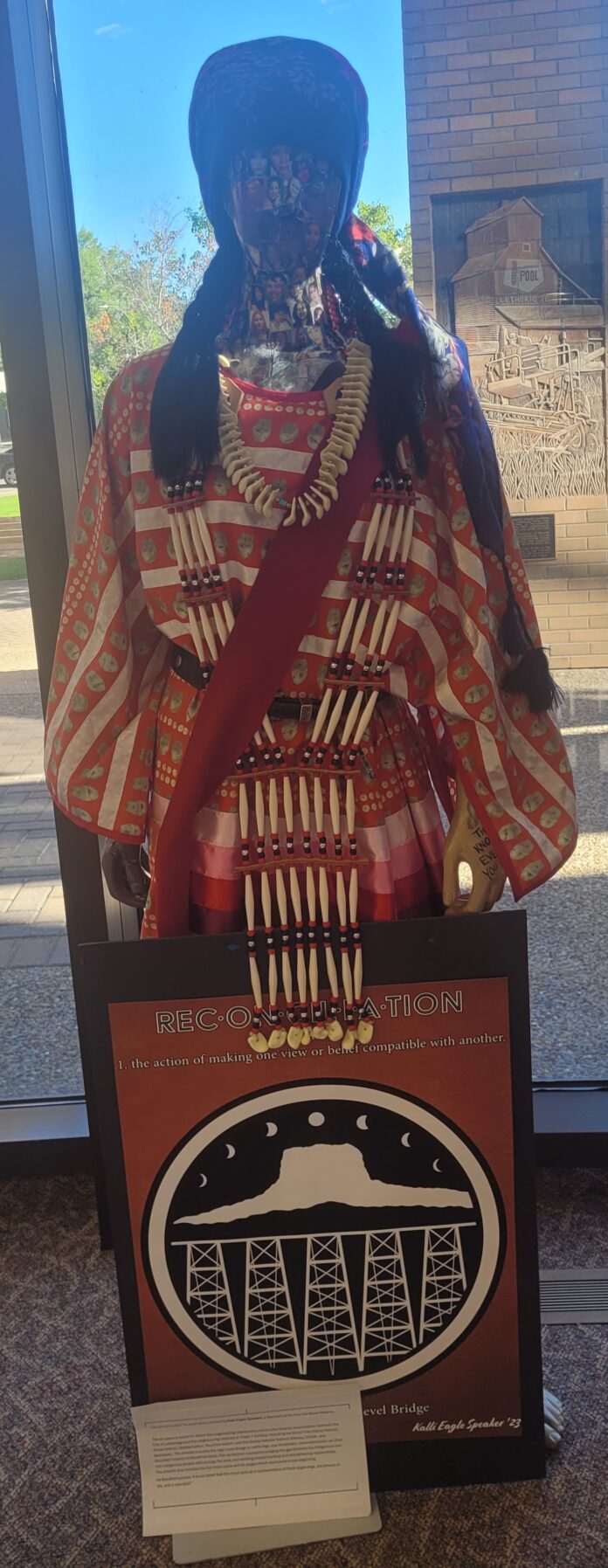A more inclusive and welcoming Land Acknowledgement has been released by the City of Lethbridge following changes at local Indigenous organizations in the city.
“The updated acknowledgement upholds the intention of paying respect to the Blackfoot people who are the traditional owners of the land Lethbridge is located on,” says Echo Nowak, Indigenous relations specialist. “It now provides more inclusive language welcoming to all Indigenous Peoples who call Lethbridge home.”
The updated acknowledgement now reads, “The City of Lethbridge acknowledges we are gathered on the lands of the Blackfoot people of the Canadian Plains and pays respect to the Blackfoot people past, present and future – while recognizing and respecting their cultural heritage, beliefs and relationship to the land. The City of Lethbridge offers respect to the Metis and all who have lived on this land and made Lethbridge their home.”
Lethbridge City Council approved an updated Land Acknowledgement in early July. The Reconciliation Lethbridge Advisory Committee (RLAC) created and put forward the new language for Council’s approval. Committee members provide a range of perspectives from across the community with varying roles in advocating and representing Indigenous experiences and knowledge. Local Indigenous organizations provided input on the updated language, ahead of the July Council meeting.
“We are now District One with the Metis Nation of Alberta. We are no longer District Three. We wanted to have that changed and to be more inclusive with all Indigenous people living in Lethbridge, while maintaining the fact we are on Blackfoot territory and honouring the land we live on,” notes Nowak.
Nowak explains July was a great opportunity with the changes within the Metis Nation of Alberta to reflect and see what can be done or what can be changed. “We know everything is always evolving and changing. We wanted to be more inclusive because we are such a vast and diverse population.”
“We encourage everyone in the community to consider using the updated acknowledgement,” adds Cyndi Bester Crane, co-Chair of RLAC. “One way we’ve seen organizations use the acknowledgement is by playing the Oki video before their meetings or events. It helps to remind people about the land we’re fortunate enough to call home, but it also helps to educate and welcome visitors to the city by acknowledging the proud Indigenous history.”
Nowak adds there’s also a variety of opportunities for you to learn about reconciliation and Indigenous people during Truth and Reconciliation Week and the National Day for Truth and Reconciliation Sept. 30. The week kicks off Sept. 23 at 9 a.m. with a pipe offering ceremony in front of City Hall.
Activities during the week include the Reconciliation Championship Awards and the 10th anniversary of the Buffalo Treaty signing.








